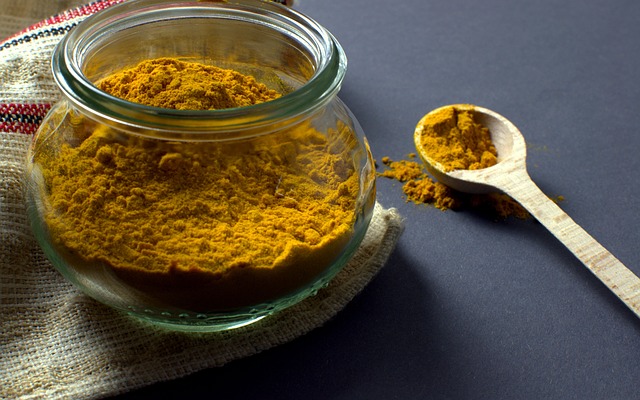
7 Best Herbs for Natural Kidney Cleanse
Your kidneys perform several important functions, and if you don’t keep them healthy, you are at risk for serious diseases like kidney failure or kidney cancer. The kidneys filter blood and eliminate fluid waste, which is their main and best-known function. However, they do much more than that.
The kidneys help control blood pressure because they need some stress to function properly. This means that the kidneys can use a hormone called renin, which constricts blood vessels to raise or lower blood pressure as needed.
Since the kidneys are primarily used for cleansing, they do not require additional detoxification. However, there are several ways to take the pressure off your kidneys so they can perform at their best.
The most important thing to remember is to eat a variety of healthy foods and stay hydrated. After that, several herbs are good for the kidneys. Wait till you see #5 – it’s really easy to get, but you probably never thought to eat it!
Garlic cloves
Garlic can help protect your kidneys and other organs. Lead and cadmium levels in the kidneys, heart, liver, spleen and blood have been observed to decrease with regular intake. Garlic also has a diuretic effect that helps remove excess sodium from the body.
Additionally, the active ingredient in garlic, allicin, has anti-inflammatory, antibacterial, and antifungal properties. This means it helps your kidneys clean and filter your blood to remove toxic invaders.
Turmeric
Turmeric is an ingredient that gives curries its unique flavor and color and is well known among Asian food lovers. Curcumin, the main component in turmeric, is known to reduce the effects of inflammatory chemicals and enzymes that cause chronic kidney disease. Curcumin inhibits the growth and spread of many types of bacteria and reduces stress on the kidneys.
People who already have kidney problems should be careful. Turmeric contains high amounts of potassium, which, along with salt, controls the body’s fluid balance. Because kidney disease makes it difficult for the kidneys to maintain a healthy potassium balance, patients are often advised to reduce their potassium intake.
Garlic
Ginger contains a chemical called gingerol, which is known to limit the spread of bacteria and has long been used in holistic medicine. Overworked kidneys and liver can benefit from it. Gingerol is also a great way to support healthy digestion while reducing inflammation and pain throughout the body.
Chronic high blood sugar can damage the kidneys, and some research suggests that ground ginger may help reduce it. Therefore, regular intake of ginger in diabetics may reduce the risk of kidney complications. Ginger may prevent diabetes in healthy individuals.
Cranberry Juice
Cranberries are an excellent fruit to include in almost any diet, even a low-potassium kidney diet. They are recommended for people with bladder infections because cranberries contain phytonutrients called A-type proanthocyanidins, which help prevent bacteria from attaching to the lining of the urinary system and kidneys.
Urinary tract infections are more common in people with kidney disease, and cranberries are a great addition to their daily diet because they are low in sodium, phosphorus, and, of course, potassium.
Whether you have kidney disease or not, regular consumption of cranberries can help prevent urinary and bladder infections. They can be eaten whole, dried or juiced.
Dandelion Root
When dandelions invade your garden, they may drive you crazy, but this “weed” actually has many benefits. Dandelion root is a diuretic that can help cleanse the kidneys and liver. Jaundice, acne and anemia, kidney and liver diseases have all been treated with it. Dandelion root is also beneficial in preventing urinary tract infections.
Most people drink dandelion root tea made from crushed roots. Boil in water for about 15 minutes, then drain and drink. You can also eat dandelions raw or cooked. Dandelions grow fast almost everywhere, so you can get them for free on your lawn in summer.
Vanilla Cilantro
Don’t forget to add some decorations! It might seem pointless to sprinkle parsley over a meal, but this small amount of this herb actually helps flush out toxins from your kidneys. Apiol and myristicin are natural diuretics found in parsley. Parsley can also help treat urinary tract infections and kidney stones.
On the other hand, parsley is not recommended for diabetics because it can lower blood sugar levels. Parsley can cause drops that are too low when used with medications prescribed by a doctor. Parsley can make pre-existing kidney problems worse. If you’re considering starting parsley therapy, talk to your doctor first.
Celery root
Because celery root contains potassium and salt, it provides your kidneys with the nutrients they need to function properly. It also contains a lot of water, which can help your body get rid of toxins by increasing the flow of urine. Celery root is said to protect the kidneys and urinary tract from bacterial infections. Some studies have also shown that celery can reduce cysts in the reproductive organs.
Celery is low in potassium, and even large stems contain only 4% of the base RDI. However, if you have kidney problems, talk to your doctor before adding celery to your daily diet.
Adding these 7 herbs to your regular diet can do wonders for your kidneys before you develop kidney disease or diabetes. This is one of the easiest and most effective ways to keep these vital organs in good shape.
These herbs are so potent that people with kidney disease must avoid them because they can significantly and often unpredictably enhance the effects of medications. (Due to the amount you consume and the varying amounts of certain minerals in the plant, herbal remedies are used in lower amounts than the exact dose of the drug.)
For anyone trying to maintain kidney health, there is a range of herbal remedies, from spicy garlic and turmeric to bitter dandelion, tart cranberry and mild celery.
